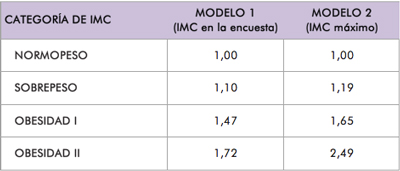According to a recent study, it is not only important that your current BMI is normal, it is also important that your BMI has never been elevated.
After analyzing more than 6,000 subjects, the study demonstrated that mortality risk does increase in two distinct ways; where there is an increase in the current BMI and where the BMI has increased previously during the subject’s life. The latter risk was more pronounced than the former.
Neolife medical management
Being overweight and obese in the past can often leave lasting effects on our body, just like tobacco does in ex-smokers.
We know that being overweight and obesity often correlate with a greater morbidity-mortality risk. Nevertheless, until recently there have been few studies that have evaluated the fact that if you were previously obese but are no longer obese then your body will still bear evidence from your previous obesity. In a recent and interesting study published online in the Proceedings of the National Academy of Sciences journal (1) it has been shown that if you have previously maintained a high body mass index (BMI) throughout your life then this can be a mortality predictor that is more accurate than your current BMI. For example, if 5 years ago a person was classified as obese type II (with a BMI of 35 Kg/m2), but currently has a normal weight (with a BMI of 24 Kg/m2), their risk of mortality remains high, even above other obese type II people who currently have a BMI of 35.

The study analyzed data from 6,276 subjects aged between 50 and 74 years old provided through US national health and nutrition surveys. (NHANES) between 1988 and 2010. Of the above subjects, 875 died within an average follow-up period of 8 years.
39% of the respondents had lost weight having been overweight or obese and were considered to be at a normal weight at the time of the survey. The risk of mortality was calculated by reference to two models, the first based on the subject’s BMI at the time of the survey and the second on the maximum BMI that the subject would have had throughout their life. It was observed that both in model 1 and model 2 the ratio relating to the risk of mortality increased alongside weight, but model 2 showed a more pronounced risk. That is to say, past obesity can leave a mark.
 Comparative table: risk ratios based on current BMI and maximum BMI.[/ caption]
Comparative table: risk ratios based on current BMI and maximum BMI.[/ caption]
Does this mean that weight loss is bad? The answer is NO. What this study shows is that the after-effects of having been obese in the past are not completely erased even if you have lost weight and your BMI is now considered normal. It is somewhat similar to what happens with smokers: having been a smoker in the past they retain the risk of illness and remain at risk of an early death. But then, why do those who have lost weight maintain a greater risk than those who have not lost weight? The reason is that those who have lost weight have not done so voluntarily for the purposes of risk prevention but because their poor health forced them to lose weight. That is to say, they started from a worse state of health than those who remained obese.
In conclusion, not only is it important that your current BMI is normal, it is also important that your BMI has never been elevated. This data is important when it comes to how best to avoid weight gain: it is not desirable to think that we can gain weight because we are certain that in the future we will lose the weight gained. The time that we spend overweight or obese can leave a lasting mark on our health, in the same way that we often see with ex-smokers.
BIBLIOGRAPHY
(1) Proc Natl Acad Sci USA. Published online January 4, 2016.
